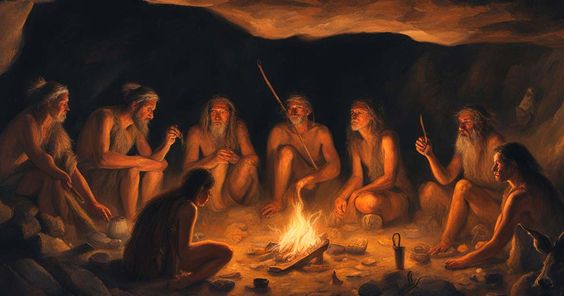REYNALDO C. LUGTU, JR. l May 9, 2024 l Manila Bulletin

The new Netflix documentary “Secrets of the Neanderthals” offers intriguing insights into the lives of our ancient relatives, challenging long-held assumptions and revealing surprising aspects of their behavior and culture.
Through excavations and studies at key Neanderthal sites such as Shanidar Cave in Iraq, researchers have uncovered new evidence that sheds light on various aspects of Neanderthal life.
One significant revelation from the documentary is the discovery at Shanidar Cave of Neanderthal remains, particularly Shanidar Z, which offers insights into their diet and intelligence. Furthermore, the injuries sustained by individuals like Shanidar 1 and 3 suggest the presence of emotional bonds within Neanderthal society, as they survived for some time after their injuries, likely cared for by others.
Another intriguing finding is the evidence of cannibalistic behaviors among Neanderthals, which challenges previous assumptions about their social and cultural practices. The documentary discusses the possibility that cannibalism had ritualistic or symbolic significance, indicating complex thinking and emotional connections within Neanderthal communities.
In addition, the discovery of Neanderthal burials, such as Shanidar 4, provides further evidence of care and thoughtfulness in Neanderthal interactions with their dead. The presence of deliberate burial practices suggests a level of cultural sophistication previously underestimated by researchers.
Lessons gleaned from these discoveries offer valuable insights for modern humans, particularly in the context of climate change and environmental challenges. Neanderthals faced extinction during the last Ice Age, likely due to hunting problems caused by drastic climate changes and competition with Homo sapiens. Their ability to adapt to changing environments underscores the importance of resilience and flexibility in the face of environmental pressures.
Furthermore, the evidence of emotional bonds and social relationships among Neanderthals highlights the importance of community and cooperation in times of hardship. By studying Neanderthal behaviors and responses to environmental challenges, modern humans can gain a deeper understanding of our own capacity for adaptation and survival in the face of global crises.
Additionally, recent discoveries challenge previous assumptions of Neanderthals as primitive, revealing evidence of complex cultural practices. The presence of deliberate burial rituals, symbolic behaviors, and potentially even rudimentary forms of art suggests that Neanderthals had rich cultural lives, emphasizing the importance of appreciating and respecting diverse cultural traditions and histories.
Furthermore, Neanderthals demonstrated a remarkable ability to adapt to diverse environments and innovate in response to changing conditions. From developing specialized tools for hunting and butchering to adapting their diet to different ecological niches, Neanderthals displayed a capacity for innovation and problem-solving.
Lastly, Neanderthals lived in close connection with their natural environment, relying on local ecosystems for food, shelter, and resources. Their intimate knowledge of the land and its resources enabled them to survive and thrive for millennia, serving as a reminder of the interconnectedness of human societies and the natural world.
Overall, the Neanderthals offer valuable lessons for modern humans in resilience, community, cultural diversity, innovation, and environmental stewardship. By studying their behaviors, adaptations, and interactions with their environment, we can gain insights into our own capacity for survival, cooperation, and adaptation in the face of present and future challenges.
*** The author is the Founder and CEO of Hungry Workhorse, a digital, culture, and customer experience transformation consulting firm. He is a Fellow at the US-based Institute for Digital Transformation. He is the Chair of the Digital Transformation IT Governance Committee of FINEX Academy. He teaches strategic management and digital transformation in the MBA Program of De La Salle University. The author may be emailed at rey.lugtu@hungryworkhorse.com .
The views and opinions expressed above are those of the author and do not necessarily represent the views of FINEX. Photo from Pinterest.

